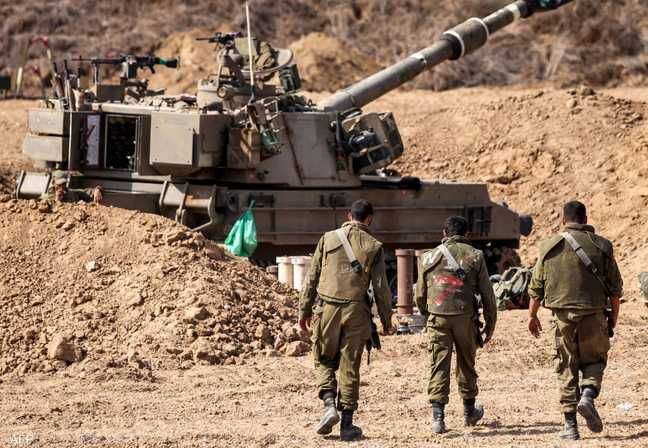However, while Hamas recently announced it would agree to a provisional deal, the Israeli government changed course, declaring it only wants a comprehensive agreement that guarantees the release of all hostages and an end to the war. It remains unclear how and when this can be achieved.
Meanwhile, Israel announced it will launch a new large-scale campaign in Gaza City to eradicate Hamas fighters. The army is preparing this week to call up tens of thousands of reservists to advance.
Experts believe these two measures will likely prolong the war rather than shorten it. Israeli Prime Minister Benjamin Netanyahu pledged to continue fighting until his country achieves a decisive defeat of Hamas, which has ruled Gaza for nearly two decades, by stripping it of its military and governmental capabilities and forcing it to disarm.
But Hamas refuses to surrender or accept Israel’s conditions to end the war. Experts doubt Israel can achieve what it has failed to do in the 22 months since the Hamas-led attack on October 7, 2023, either militarily or through negotiations.
Thomas Nides, former U.S. ambassador to Israel, explained that “Netanyahu defined success as something unattainable,” calling the complete elimination of Hamas an impossible goal. He added that success should be defined by what has actually been achieved: “That October 7 will not happen again.”
The Israeli military claims to control more than 75% of Gaza, but many analysts say that pursuing the last Hamas member and uprooting the movement as an ideological force is unrealistic.
Nides and other experts believe that only former U.S. President Donald Trump has the ability to pressure Netanyahu to end the war. However, the current U.S. administration appears to support Netanyahu’s war plan and seems to have also changed its stance on negotiations.
About a month ago, Steve Witkoff, the U.S. administration’s special envoy to the Middle East, announced during a meeting with hostage families that Trump wants to release all 20 living hostages at once. Witkoff added, “No piecemeal deals; that doesn’t work,” and that there is a plan to shift negotiations toward an “all or nothing” deal. However, no details were provided, and no clear signs of progress have appeared since. The last ceasefire agreement was reached in January but collapsed in March when Israel resumed fighting in Gaza. Since then, Israel, the U.S., along with Qatar and Egypt as mediators, have pressured Hamas to accept a framework for a new provisional agreement.
The proposal called for a 60-day truce and the exchange of about half of the living hostages and some bodies in return for Palestinian prisoners in Israel. Under the plan, negotiations would immediately begin to reach a permanent ceasefire. Israeli officials described this proposal as the only offer on the table.
By mid-August, when Hamas reluctantly accepted such an agreement under pressure, Israel suddenly changed the terms. Although Netanyahu has not publicly ruled out a provisional deal, his ministers described the path as no longer suitable, and the government has not officially responded to Hamas’ reply.
Mickey Zohar, a minister in Netanyahu’s Likud party, confirmed: “There is no longer an option for a partial agreement. The only thing on the agenda is ending the war, along with the return of all hostages, and of course, disarming the Gaza Strip.”
According to Shira Efron, an Israeli policy expert at the non-profit RAND Corporation, “This means more delays and a longer war,” adding that Trump may believe this military operation this time could be “quick and clean.” But it could also be “dirty and long.”
The question of what kind of deal to pursue (provisional or comprehensive) poses a serious dilemma for Israeli political and military leaders and troubles hostage families and many citizens. A partial deal that leads to the release of about half the living hostages in the first phase means choosing who is freed and who is left behind, without any guarantee that negotiations for the next phase will succeed where they have failed before. Israelis believe Hamas will never release all hostages because that would strip it of its winning card. Shalom Ben Hanan, a former official in the Israeli Shin Bet, said, “It’s not clear that Hamas would want to give up its insurance policy.”
Meanwhile, photos released by the captors of weak and emaciated hostages highlight the severity of their condition, prompting many Israelis to question whether it is better to save 10 of them alive now rather than trying to reach a more complicated comprehensive deal.
Israel’s plan to control Gaza City carries risks for all parties. The Strip is experiencing a severe humanitarian crisis, and a report by a committee of food security experts concluded that famine is striking parts of it, a characterization Israel rejects. The military plan, expected to displace about one million Gaza residents, is likely to cause more Palestinian deaths and destruction and may endanger the lives of hostages held in the area.













Recommended for you
Exhibition City Completes About 80% of Preparations for the Damascus International Fair Launch
Talib Al-Rifai Chronicles Kuwaiti Art Heritage in "Doukhi.. Tasaseem Al-Saba"
Unified Admission Applications Start Tuesday with 640 Students to be Accepted in Medicine
Egypt Post: We Have Over 10 Million Customers in Savings Accounts and Offer Daily, Monthly, and Annual Returns
His Highness Sheikh Isa bin Salman bin Hamad Al Khalifa Receives the United States Ambassador to the Kingdom of Bahrain
Al-Jaghbeer: The Industrial Sector Leads Economic Growth